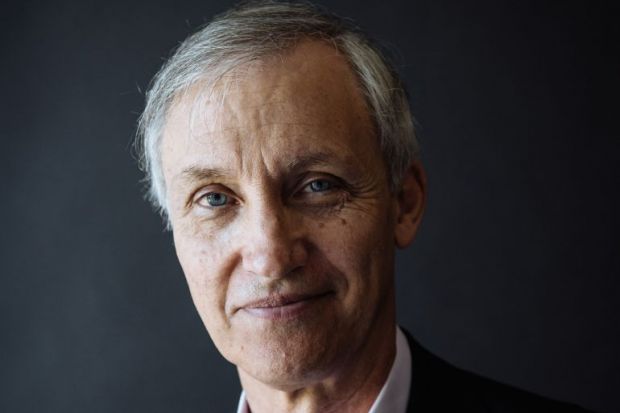The professor at the heart of Australia’s university fundraising row has warned that hostile responses to bequests and donations risk undermining a sorely needed higher education revenue stream.
Simon Haines, director of the Ramsay Centre for Western Civilisation, claimed that donors may disappear if their largesse keeps being rebuffed in storms of controversy. That would choke off an alternative source of funding for universities that rely heavily on insecure income from foreign students, and whose operations cannot be sustained by government grants or domestic fees.
The warning came after the Australian National University ended negotiations to run a course in Western civilisation with the Ramsay Centre’s support. The organisation was also prepared to offer funding for student scholarships, but the proposed partnership triggered complaints from the National Tertiary Education Union that the centre’s “radically conservative” programme would be used to “promulgate the alleged superiority of western civilisation”.
The cancellation of the ANU partnership led to accusations that the institution had kowtowed to activist academics, and questions over why the ANU is happy to accept money from the governments of Iran and China but not a group championing the study of traditional culture.
ANU vice-chancellor Brian Schmidt said that the university’s decision had nothing to do with the degrees’ subject matter. Rather, the Ramsay Centre had “sought a level of influence over our curriculum and staffing” that was “inconsistent with academic autonomy”, he claimed.
University of Sydney academics have also raised objections to a potential partnership with the Ramsay Centre.
Professor Haines argued that it was time for a public debate about the risks of alienating philanthropists.
“Potential investors don’t necessarily have a political line, but they will certainly have an interest in how their money is spent,” he told Times Higher Education.
“You wouldn’t expect somebody to give a lot of money to a university and have absolutely no interest in what the university did with it.”
The controversy follows the 2015 scuttling of plans to set up an Australian policy centre based on the methodology of Danish climate contrarian Bjørn Lomborg.
The Australian government withdrew an A$4 million (£2.3 million) grant to fund the Lomborg centre after a campaign by staff, students and the public forced the University of Western Australia to cancel a contract to host it. A similar backlash undermined negotiations to locate it at Flinders University in Adelaide, and 13 other institutions are thought to have rejected the centre.
Professor Haines said that potential donors could be linked with ideological or commercial perspectives of one sort or another, but that did not mean they intended to use academia to assert their views. He said universities risked shooting themselves in the feet if they treated every contribution with hostility.
“University funding is in a tricky situation,” he said. “A huge range of benefactors is out there – everything from national governments to private donors, at all sorts of scales and levels.”
The Ramsay Centre, which is funded from the estate of the late health magnate Paul Ramsay, wants to funnel well over A$10 million a year into humanities study. On offer is support for up to 36 academic posts, 90 five-year undergraduate scholarships worth about A$25,000 a year, and 25 postgraduate scholarships worth about three times that much.
Professor Haines said Australian humanities study was “in deep trouble” after being almost completely overlooked in a recent round of research infrastructure funding. “I sincerely hope the Ramsay Centre will be able to help the much beleaguered sector,” he said.
Register to continue
Why register?
- Registration is free and only takes a moment
- Once registered, you can read 3 articles a month
- Sign up for our newsletter
Subscribe
Or subscribe for unlimited access to:
- Unlimited access to news, views, insights & reviews
- Digital editions
- Digital access to THE’s university and college rankings analysis
Already registered or a current subscriber? Login








